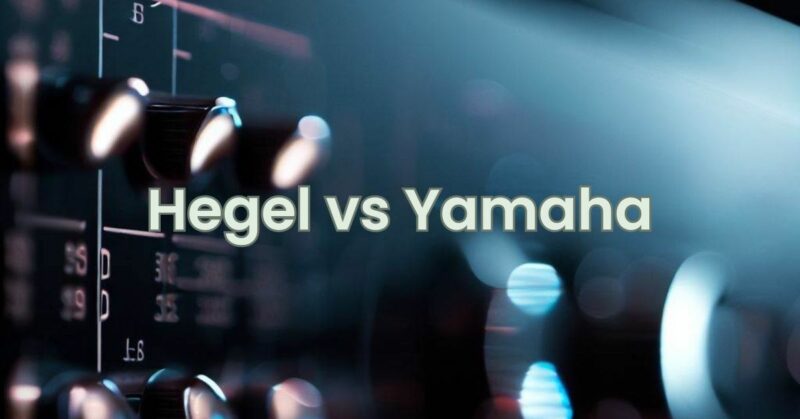When it comes to high-quality audio equipment, Hegel and Yamaha are two prominent brands that have earned a reputation for delivering exceptional sound reproduction and innovative features. In this article, we compare these two manufacturers across various categories to help you understand their strengths and differences. Whether you’re considering amplifiers, speakers, or other audio components, join us as we explore the Hegel vs Yamaha battle to aid you in making an informed decision for your audio system.
Sound Quality and Musicality:
Both Hegel and Yamaha focus on producing audio equipment that delivers outstanding sound quality and musicality. Hegel is renowned for its “SoundEngine” technology, which aims to reduce distortion and enhance audio transparency. Yamaha, on the other hand, emphasizes its rich audio heritage and expertise in acoustic engineering to deliver natural and immersive sound reproduction. Ultimately, personal listening preferences and system matching should be considered when evaluating the sound characteristics of each brand.
Amplifiers and Integrated Amps:
Hegel and Yamaha offer a range of amplifiers and integrated amplifiers suitable for various setups. Hegel amplifiers are often lauded for their clean, detailed sound, high power output, and excellent control over speakers. They incorporate advanced technologies such as DualAmp and SoundEngine to achieve exceptional performance. Yamaha amplifiers, known for their musicality and robust build quality, cater to a wide range of budgets and offer features like Pure Direct mode for enhanced audio purity. Consider your power requirements, connectivity needs, and desired sound signature when choosing between the two.
Digital-to-Analog Conversion (DAC):
Both Hegel and Yamaha place great importance on digital-to-analog conversion in their products. Hegel’s DAC implementation is known for its high-resolution capabilities and ability to extract fine details from digital sources. Yamaha integrates its proprietary technologies like the legendary “ToP-ART” and “Total Purity Concept” into their DAC designs, aiming to achieve accurate and natural sound reproduction. Evaluate the specific DAC features, connectivity options, and compatibility with your audio sources to make an informed choice.
Speakers:
Hegel and Yamaha offer a variety of speakers designed to complement their amplifiers and deliver a captivating listening experience. Hegel speakers are often praised for their precise imaging, transparent sound, and dynamic range. Yamaha speakers are known for their balanced sound reproduction, wide dispersion, and careful driver selection. Consider your room size, listening preferences, and budget when selecting speakers from either brand, as these factors greatly impact the overall sound quality.
Build Quality and Design:
Hegel and Yamaha both prioritize build quality and design aesthetics. Hegel amplifiers and components boast robust construction, sleek Scandinavian-inspired designs, and attention to detail. Yamaha, with its long-standing heritage, incorporates a combination of functionality and elegance in its designs, often featuring timeless aesthetics and user-friendly interfaces. Take into account your preference for design, build quality, and how well the equipment fits into your existing setup.
Conclusion:
Hegel and Yamaha are esteemed audio brands with their own unique approaches to sound reproduction and design. While Hegel emphasizes technological innovations and transparent sound reproduction, Yamaha combines its rich audio heritage with musicality and robust construction. Ultimately, the choice between Hegel and Yamaha will depend on your personal preferences, listening priorities, and budget. It is recommended to audition the equipment and consider the compatibility with your existing audio system to ensure a seamless integration and a satisfying listening experience.


